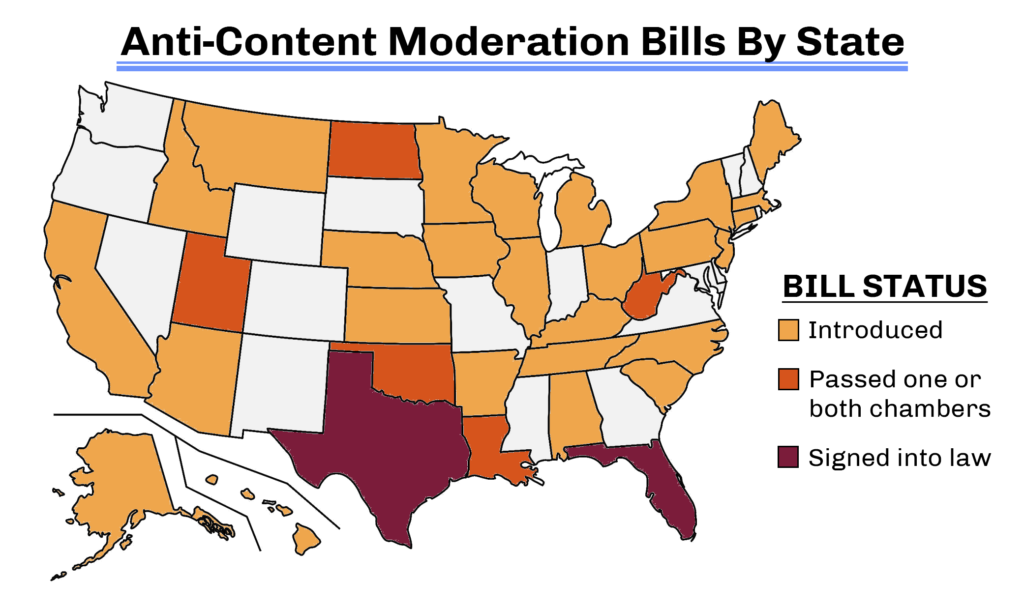WASHINGTON, DC – In the one year since the Jan. 6 attack on the U.S. Capitol and the subsequent crackdown by social media companies on extremist content, Republican state legislators have introduced a flurry of bills to prevent online content moderation.
Often making “censorship” claims, GOP lawmakers in 33 states have introduced legislation to punish or prevent social media platforms from taking down content or banning users. In more than half a dozen states, the legislation has passed one or both chambers, and in Florida and Texas the bills have been signed into law, although both have been enjoined by courts.
“In state after state, Republican lawmakers are attacking the ability of social media companies to remove violent and extremist content,” said Chamber of Progress CEO Adam Kovacevich. “Anti-content moderation laws have become a rallying cry for the right. While most of these attempts don’t pass constitutional muster, it’s troubling that GOP lawmakers are so determined to stop platforms from countering extremism.”
Some of the anti-content moderation bills under consideration, including those in Kentucky and North Dakota, were introduced in the days that followed the Jan. 6 attack and President Trump’s removal from Twitter and Facebook. In other states, including Wisconsin, multiple bills have been introduced in the House and Senate that would prevent social media companies from moderating content on their platforms.
Chamber of Progress has supported successful lawsuits in Florida and Texas to overturn the anti-content moderation laws that passed in those states.
###
Chamber of Progress (progresschamber.org) is a new center-left tech industry policy coalition promoting technology’s progressive future. We work to ensure that all Americans benefit from technological leaps, and that the tech industry operates responsibly and fairly.
Our corporate partners do not have a vote on or veto over our positions. We do not speak for individual partner companies and remain true to our stated principles even when our partners disagree.
